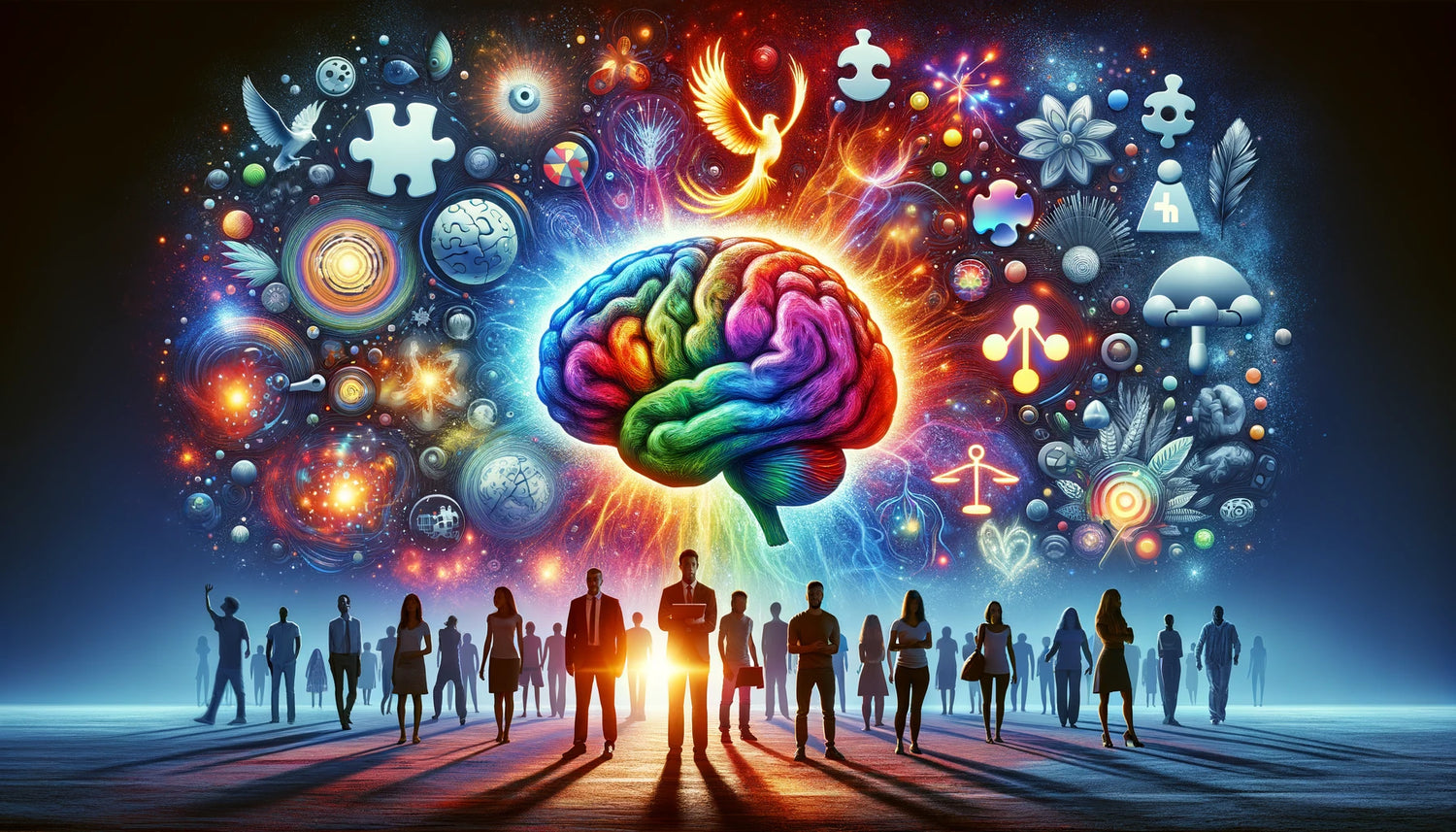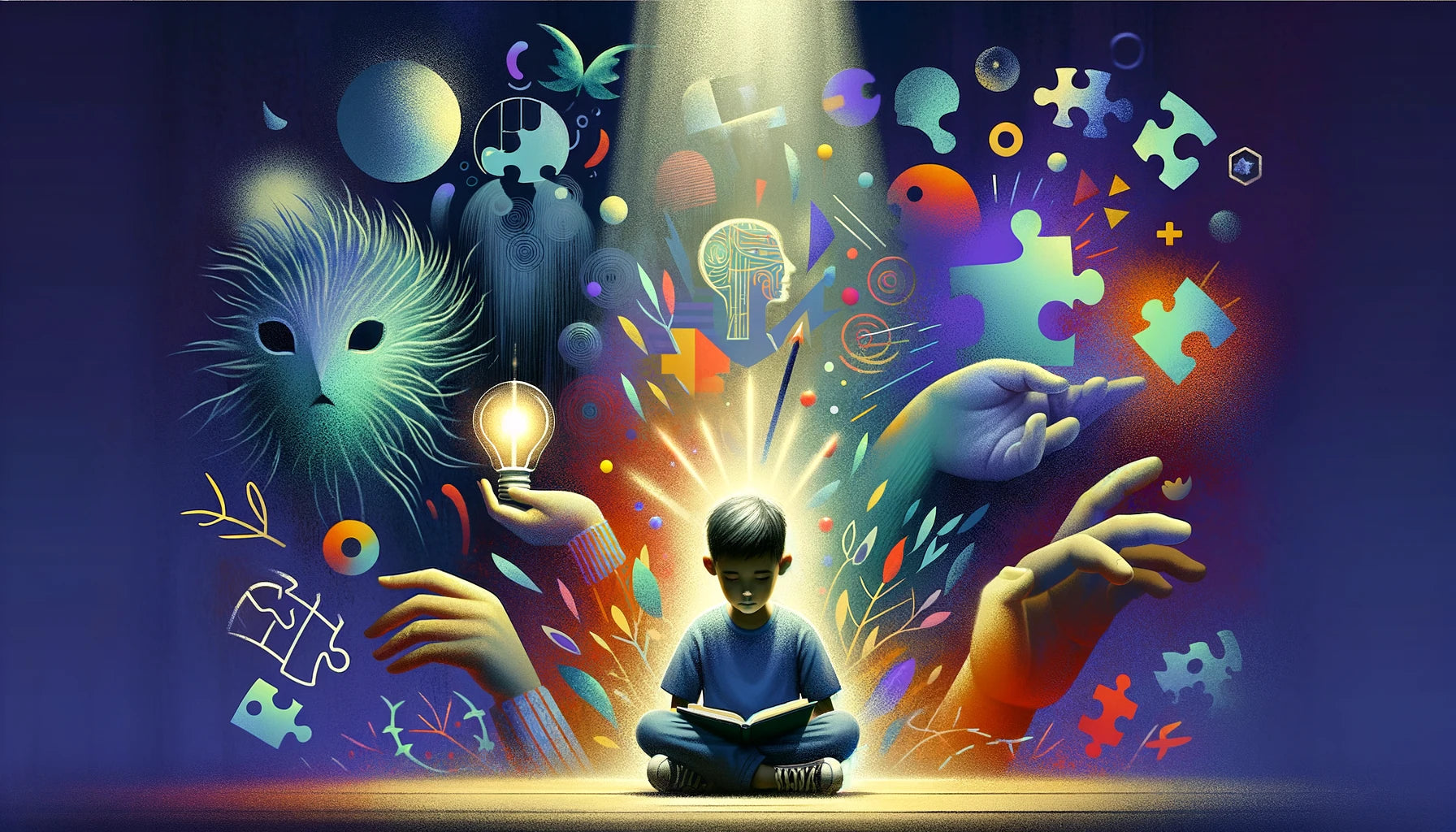Hey there, curious minds! Hold on to your seats because we're about to flip the script on mental health!
Is Your Brain Really "Disordered" or Just Misunderstood?
Ever thought about why we label certain mental states as "disorders"? In a game-changing paper, some super-smart biological anthropologists are shaking things up big time! They're saying, "Wait a minute, maybe conditions like anxiety, depression, and PTSD aren't chemical mishaps in our brains – but actually clever responses to life's curveballs!" Mind-blowing, right?
The Medication Paradox: A Global Puzzle!
Let's get real: we're living in a world that's quick to pop pills for anxiety and depression, but guess what? The rates of these conditions aren't budging. From 1990 to 2010, global depression and anxiety levels stayed put at around 4%. And, drumroll, please... those antidepressants? They often don't outshine a simple placebo. Makes you wonder, are we missing something?
Worldwide Woes vs. Conflict Zones: A Tale of Two Worlds
Here's a twist: while about 1 in 14 people globally battle these mental health challenges, in areas torn by conflict, the number jumps to 1 in 5. Our researchers think this isn't just a coincidence but a sign that our brains are adapting to tough situations. Anxiety could be our internal alarm system, PTSD a protective freeze response, and depression a focus enhancer for tough times. Wild, huh?
️ The Power of Labels: It's All in the Name ️
Labels aren't just for jars; they shape how we see ourselves. Do we have a "disorder," or are we just responding to hard knocks in life? This question isn't just philosophical – it's about hope and potential. Like, take ADHD. Once, these kids were the "bad boys" of the classroom, but now we understand they learn differently. This change in perspective can turn a "problem" into a strength. But here's the kicker: ADHD might not be a disorder at all, but a mismatch with our modern, sit-still, less-active lifestyle. Talk about a plot twist!
ADHD: A Case of Evolutionary Mismatch?
Ever noticed how kids in Finland, with all their playtime, rarely have ADHD issues? Meanwhile, in the U.S., where kids are glued to their desks, ADHD diagnoses are soaring. Could it be that our brains are just not wired for the modern classroom? It's a head-scratcher that's got experts thinking: maybe we need a classroom revolution instead of medical solutions.
The Brain Chemistry Conundrum: A Double-Edged Sword
Sure, there's evidence linking brain chemistry to mental health issues, but does that mean we've got the full picture? Researchers in Finland found that even healthy brains show changes in the opioid system related to anxiety and depression symptoms. So, is it really a "disorder," or are our brains just responding to life's ups and downs?
Changing the Mental Health Game: A New Hope
This isn't about ditching medication but rethinking our approach. What if understanding mental health as a response to adversity, rather than a defect, could empower people? It's not just about popping pills but addressing the root causes – the social and environmental stressors that impact our well-being.
So, what's the verdict? Do we need a mental health makeover? Absolutely, but it's a balancing act. While we work towards societal changes, medical care remains crucial. It's all about evolving our understanding and treatment methods to better suit the complex human experience.
Stay tuned, because this mental health revolution is just getting started!
Mental Health in 3D: A Biopsychosocial Blockbuster!
Alright, folks, let's dive into the second act of our mental health saga! Imagine mental health as a 3D movie – there's more to it than just brain chemistry. It's a biopsychosocial epic! Think about it: our brains, our personal experiences, and the society we live in all team up to create the story of our mental health. So, why have we been watching this blockbuster in 2D all this time?
The Mystery of Treatment: Unraveling the Knot
The plot thickens when we talk about treatment. It's like a detective story with a twist: we've been focusing on the symptoms, but maybe we should be looking at the whole scene. It's not just about what's going on in our brains, but also what's happening in our lives and our world. Are we treating the symptoms or the cause? The answer might just be the key to unlocking a new era of mental health care.
The ADHD Enigma: An Evolutionary Puzzle Piece
Now, let's zoom in on ADHD. It's like a puzzle piece from our evolutionary past that doesn't quite fit into our modern life. Think of kids with ADHD as mini explorers in a world that's asking them to be librarians. It's not that they're disordered; it's just that their skills are better suited for a different kind of environment. Maybe it's time to redesign the library to fit the explorer, instead of the other way around!
The Future of Mental Health: A Journey to New Horizons
As we rocket towards the future, it's clear that our journey through the mental health universe is just beginning. We're exploring new planets of understanding and treatment. It's not just about changing medications, but about changing minds, societies, and maybe even our school systems. The goal? To create a world where everyone's mental health journey is supported and understood.
The Grand Finale: A Twist of Hope and Innovation
As we reach the grand finale of our mental health odyssey, it's clear that the future is bright and full of possibilities. We're standing on the brink of a mental health renaissance, where understanding, compassion, and innovation lead the way. It's not just about treating disorders; it's about nurturing well-being in all its forms.
So, as the credits roll on this mental health blockbuster, remember: the story isn't over. In fact, it's just beginning. With every new discovery, every shift in perspective, we're writing a new chapter in the epic saga of human well-being.
Stay curious, stay compassionate, and stay tuned for the next chapter in our mental health journey!
Researched Sources:
https://www.eurekalert.org/news-releases/655768
https://www.nhs.uk/news/pregnancy-and-child/premature-birth-linked-increased-risk-adhd/
https://www.eurekalert.org/news-releases/655768
https://www.cdc.gov/ncbddd/adhd/data.html#:~:text=Millions%20of%20US%20children%20have,children%20aged%206%E2%80%9311%20years
https://www.theatlantic.com/education/archive/2015/01/finnish-schools-are-on-the-moveand-americas-need-to-catch-up/384358/
https://wwnorton.com/books/The-Polyvagal-Theory/
https://onlinelibrary.wiley.com/doi/full/10.1002/ajpa.23965






Leave a comment
This site is protected by hCaptcha and the hCaptcha Privacy Policy and Terms of Service apply.